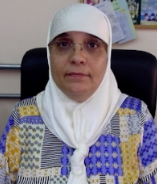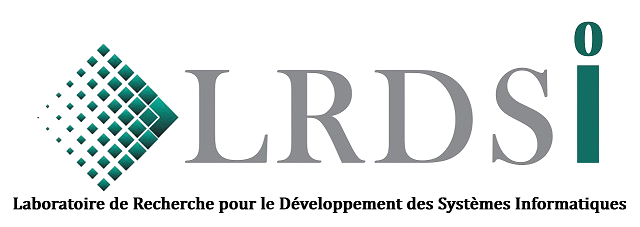Distinguished Keynote Speakers

Prof. Faisal Saeed
Birmingham City University, UK
Keynote: AI-Powered Methods for Enhancing Cognitive Disability Support
Abstract
This keynote will explore the transformative potential of AI in addressing cognitive disabilities, focusing on the application of deep learning techniques for early detection and intervention. By leveraging advanced AI technologies, we can develop personalized, adaptive solutions that significantly improve the quality of life for individuals with cognitive challenges. Specifically, we will present how deep learning algorithms are being used to detect and diagnose conditions like autism, Alzheimer’s disease, and dementia at earlier stages. Through analyzing patterns in behavior, speech, and neural imaging, AI offers powerful tools for more accurate, timely diagnoses, as well as tailored treatment plans. This session will highlight cutting-edge research and real-world applications of AI for cognitive disability support.

Prof. Mohd Ibrahim Bin Shapia
Universiti Teknologi Malaysia
Keynote: AI on Cloud – An Application
Abstract
The presentation titled « AI on Cloud – An Application » offers a practical exploration of artificial intelligence, spotlighting computer vision, 3D modeling, and generative AI. It kicks off with a historical review, spanning the early days of AI’s promise to the challenging « AI winters » marked by setbacks and technical constraints. However, the landscape has shifted significantly with the advent of deep learning, ushering in a new era of AI and the emergence of generative AI as a standout feature. Notably, Large Language Models like ChatGPT take center stage, showcasing their capacity to not only predict but also generate content. The presentation delves into the core principles of Large Language Models, elucidating how they can be tailored for various applications using embedding and fine-tuning methods. Beyond theory, the talk highlights concrete applications of AI in the cloud, encompassing tasks such as monitoring assets on tall structures, livestock counting, semiconductor defect detection, and the development of AI-driven chatbots for natural and engaging interactions. « AI on Cloud: An Application » delivers a holistic perspective on AI’s evolution, illustrating its wide-ranging impact across industries — from enhancing productivity to reshaping creativity and human-AI interactions. Looking ahead, the future of AI agents lies in the convergence of Large Language Models (LLMs) and Large Vision Models (LVMs), which will enable multimodal AI systems capable of understanding and generating across both language and visual inputs. These next-gen agents will go beyond static responses — they will reason, plan, and act autonomously in complex environments. Whether it’s in customer support, industrial automation, education, or healthcare, these intelligent agents are set to redefine digital assistance by becoming more context-aware, proactive, and seamlessly integrated into human workflows.

Prof. Azzedine Boukerche
School of Electrical Engineering and Computer Science, University of Ottawa, Canada
Keynote: Smart Internet of Drones for Sustainable Megacities
Abstract
Urban computing (UC) is an interdisciplinary field that seeks to improve people’s lives in urban areas. To achieve this objective, UC collects and analyzes data from several sources. In recent years, the Internet of Drones (IoD) has received significant attention from the academia community and has emerged as a potential data source for UC applications. The goal of this talk is to examine how IoD can connect and leverage UC in variety of applications which include: public safety and security, environment, traffic improvement, drone-assisted networks, just to mention a few. In this context, data acquired by IoD can fill gaps in data collected from other sources and provide new data for UC considering the aerial view of drones. Thus, we shall first introduce the relationship between the concepts of UC and IoD, and then discuss our proposed general framework considering the perspective of IoD for UC followed by design guidelines of the Internet of drones’ location privacy protocols. Last but not least, we shall discuss some key challenges in this emerging area.

Prof. Nadia Nedjah
State University of Rio de Janeiro, Brazil
Keynote: Swarm Robotics: Challenges, Trends, and the Road to Real-World Applications
Abstract
Swarm Robotics is a subfield of Multi-Robot Systems that leverages the principles of communication, coordination, and collaboration among a large number of relatively simple robots. By distributing tasks across many units, swarm robotics enables massive parallelization, often completing tasks more efficiently than a single complex robot could. A defining feature of robotic swarms is their decentralized control, where decision-making is distributed across all robots in the system. This decentralization enhances robustness and fault tolerance, as the failure of individual units does not compromise the functionality of the swarm as a whole. Moreover, this structure facilitates the emergence of complex collective behaviors, which arise through local interactions between robots and their environment, mediated by on-board sensors and actuators. Due to the high volume of sensory input and interaction complexity, deriving analytical solutions for swarm behavior is often impractical. As a result, the field relies heavily on adhoc approaches and heuristic methods to design and control swarm systems. The primary objective of this talk is to investigate the limited deployment of swarm robotic systems in real-world applications, despite significant academic interest. To do so, we begin by surveying the key areas of study within swarm robotics, including physical and simulated platforms, development methodologies, and the range of basic tasks and emergent behaviors. We then highlight several related research domains that significantly influence the advancement of swarm robotics. Drawing from existing taxonomies, we classify the body of research into two broad categories: system design and task-oriented approaches. Selected examples of promising robots and techniques will be presented to illustrate the diversity and innovation within the field. However, despite these advancements, there remains a notable absence of robust, real-world swarm robotic applications. Our analysis suggests that the field is still in a developmental stage, lagging behind related areas in both maturity and impact. One key limiting factor is the lack of standardized methodologies and general purpose robotic platforms, which hinders the scalability and adaptability of swarm systems across different use cases. To address these challenges, we advocate for the standardization of both hardware and software components in swarm robotics. Such standardization is crucial to accelerate progress, promote interoperability, and unlock the practical potential of swarm robotics for real-world problems that impact society.


